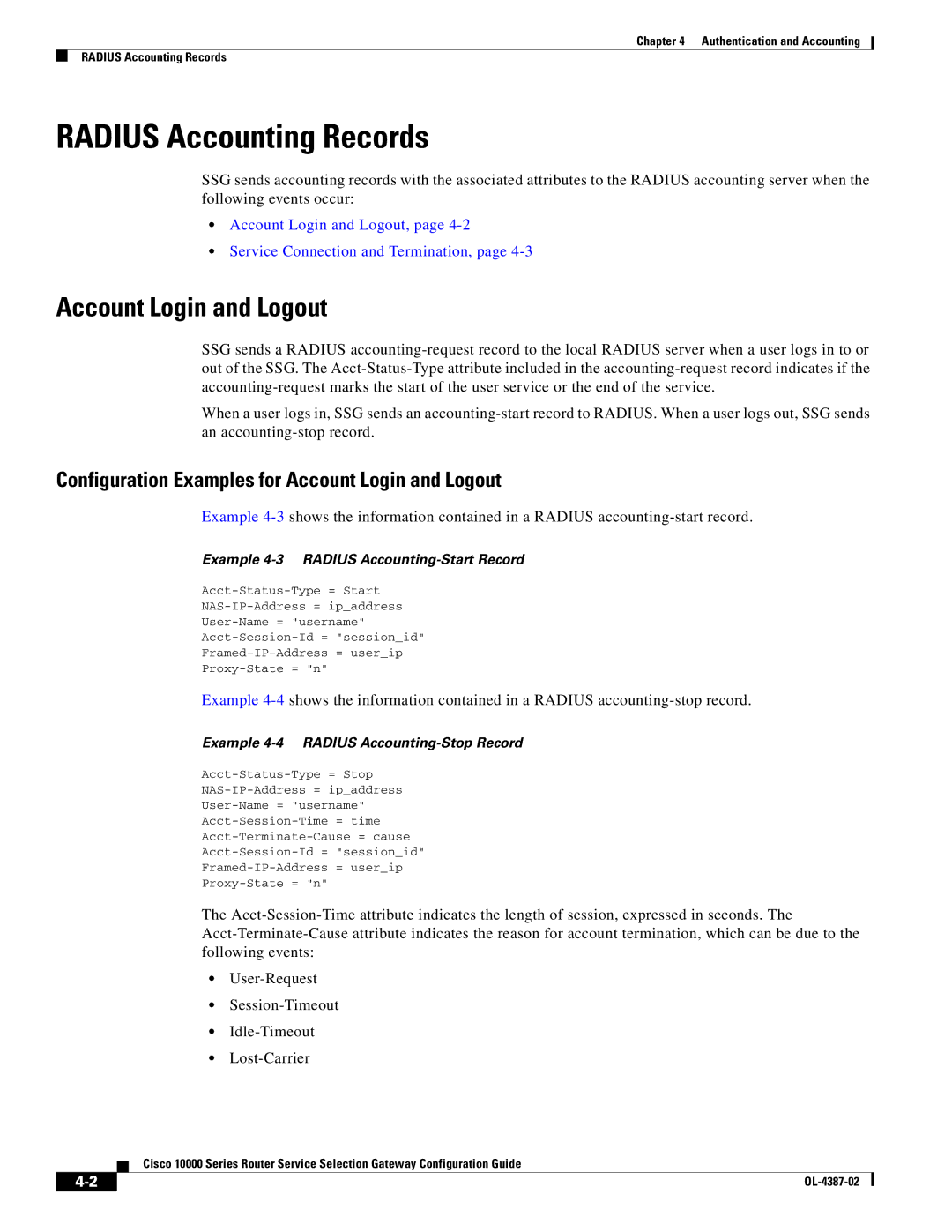Chapter 4 Authentication and Accounting
RADIUS Accounting Records
RADIUS Accounting Records
SSG sends accounting records with the associated attributes to the RADIUS accounting server when the following events occur:
•Account Login and Logout, page 4-2
•Service Connection and Termination, page 4-3
Account Login and Logout
SSG sends a RADIUS accounting-request record to the local RADIUS server when a user logs in to or out of the SSG. The Acct-Status-Type attribute included in the accounting-request record indicates if the accounting-request marks the start of the user service or the end of the service.
When a user logs in, SSG sends an accounting-start record to RADIUS. When a user logs out, SSG sends an accounting-stop record.
Configuration Examples for Account Login and Logout
Example 4-3shows the information contained in a RADIUS accounting-start record.
Example 4-3 RADIUS Accounting-Start Record
Acct-Status-Type = Start
NAS-IP-Address = ip_address
User-Name = "username"
Acct-Session-Id = "session_id"
Framed-IP-Address = user_ip
Proxy-State = "n"
Example 4-4shows the information contained in a RADIUS accounting-stop record.
Example 4-4 RADIUS Accounting-Stop Record
Acct-Status-Type = Stop
NAS-IP-Address = ip_address
User-Name = "username"
Acct-Session-Time = time
Acct-Terminate-Cause = cause
Acct-Session-Id = "session_id"
Framed-IP-Address = user_ip
Proxy-State = "n"
The Acct-Session-Time attribute indicates the length of session, expressed in seconds. The Acct-Terminate-Cause attribute indicates the reason for account termination, which can be due to the following events:
•User-Request
•Session-Timeout
•Idle-Timeout
•Lost-Carrier
Cisco 10000 Series Router Service Selection Gateway Configuration Guide

